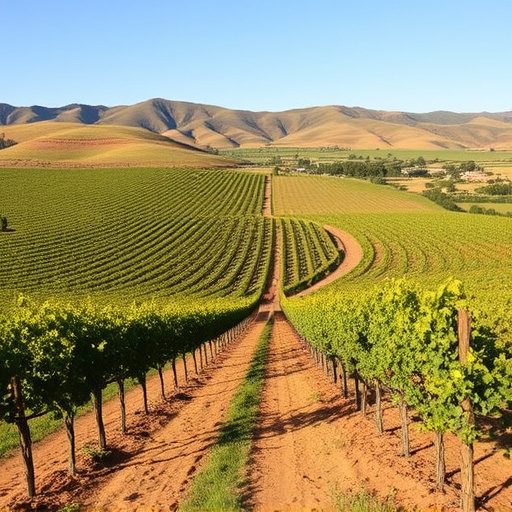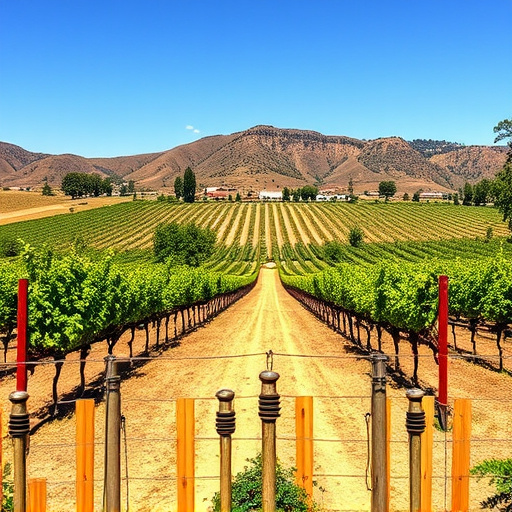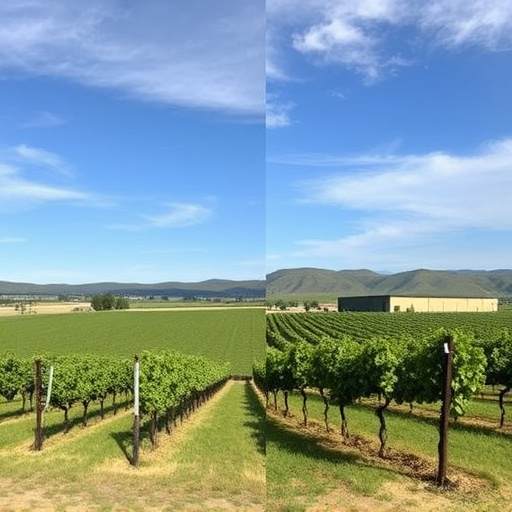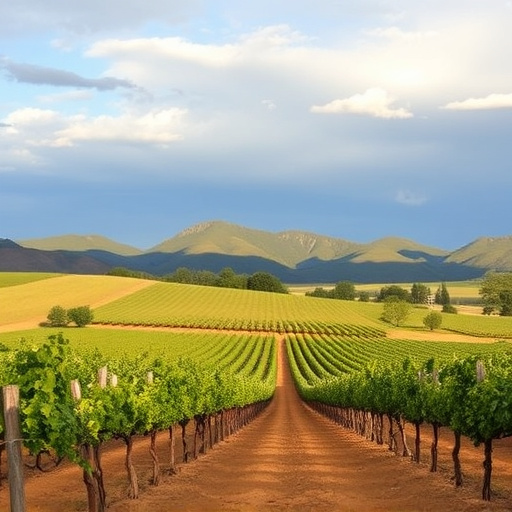Sonoita, Arizona's hidden gem in the Sonoran Desert, is revolutionizing viticulture with its dry farming practices. This eco-friendly approach forgoes irrigation, relying on nature's rainfall to nurture deep-rooted grapevines and produce distinct, resilient wines. The region's unique terroir, characterized by sandy loam and gravel soils, intense sunshine, and moderate winds, creates ideal conditions for complex flavor development. By minimizing water usage, Sonoita vineyards not only reduce their environmental footprint but also craft exceptional wines that capture the essence of this rugged landscape, attracting eco-conscious wine enthusiasts worldwide.
“Uncover the hidden gems of Sonoita region vineyards practicing dry farming, a sustainable approach revolutionizing the vino world. This eco-conscious practice, rooted in the arid climate, offers unique challenges and benefits. Dive into the lush landscape where soil, sun, and wind create a symphony of flavors. Meet the pioneers who are not just navigating this terroir but enhancing it. Explore how their dedication to sustainable practices results in indelible, bursting-with-character wines that resonate with nature’s true taste.”
- Understanding Dry Farming: A Sustainable Approach in Vino Production
- The Sonoita Region: A Haven for Eco-Conscious Viticulture
- Challenges and Benefits of Dry Farming in Hot, Arid Climates
- Exploring Sonoita's Unique Terroir: Soil, Sun, and Wind
- Meet the Vineyarders: Pioneers of Sustainable Wine Practices
- Tasting the Results: Uncovering the Flavors of Eco-Friendly Wines
Understanding Dry Farming: A Sustainable Approach in Vino Production
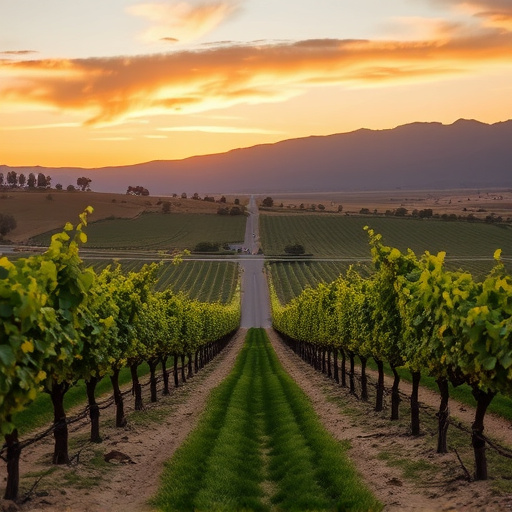
Dry farming is a traditional method that’s gaining popularity among eco-conscious Sonoita vineyards, offering a sustainable approach to vino production. Unlike irrigation, which relies on external water sources, dry farming encourages grapes to develop deep root systems by relying solely on rainfall during the growing season. This ancient technique promotes soil health and biodiversity while minimizing water usage, making it an attractive option for vineyards looking to reduce their environmental impact.
In the Sonoita region, known for its arid climate, dry farming allows vines to thrive in a natural crucible, where they become more resilient to drought conditions. By forgoing irrigation, these vineyards not only conserve precious water but also produce wines with unique characteristics. The moderate stress of limited water encourages grapes to concentrate flavors and sugars, resulting in robust, expressive wines that bear the distinct stamp of their terroir.
The Sonoita Region: A Haven for Eco-Conscious Viticulture
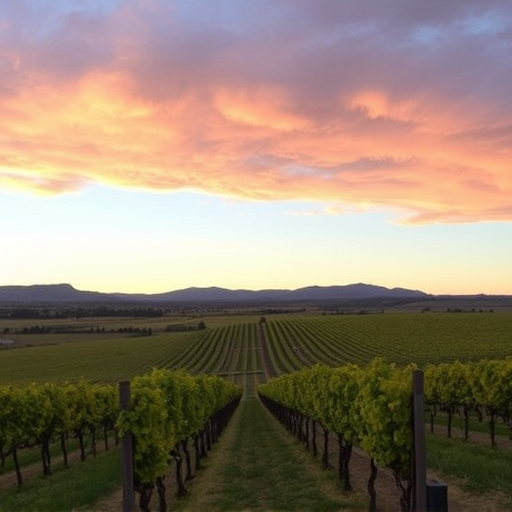
The Sonoita region, nestled in the heart of Arizona’s Sonoran Desert, has emerged as a haven for eco-conscious viticulture. Known for its arid climate and unique geological features, this area offers the perfect environment for dry farming practices, minimizing the need for irrigation and fostering resilience among the vines. Here, vineyards thrive without relying on extensive water resources, aligning perfectly with the principles of sustainability.
The region’s challenging conditions—including scorching summer temperatures and minimal rainfall—prompted winemakers to adopt innovative techniques that respect the land. By embracing dry farming, Sonoita vineyards not only reduce their environmental footprint but also produce distinctive, complex wines reflecting the distinct character of this rugged landscape. This commitment to eco-conscious practices has placed Sonoita on the map as a leader in sustainable viticulture, attracting wine enthusiasts and those passionate about preserving our planet’s natural beauty.
Challenges and Benefits of Dry Farming in Hot, Arid Climates
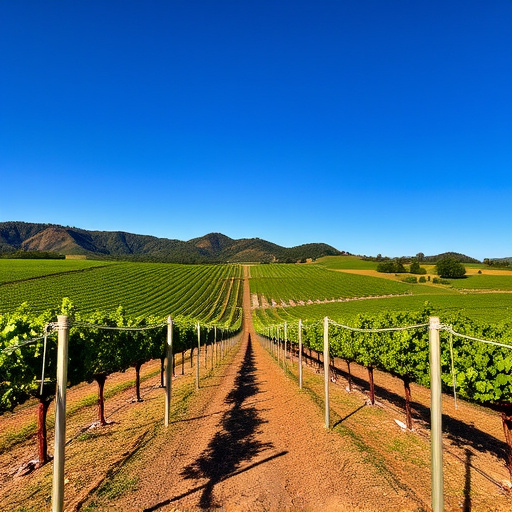
In the scorching heat and arid conditions of hot, sunny days, dry farming presents a unique challenge for viticulturists in regions like Sonoita. Unlike traditional irrigation methods, dry farming relies solely on rainfall and available soil moisture to sustain grapevines, eliminating the need for external water sources. This practice demands strategic planning and careful management, especially in areas with inconsistent rainfall patterns. However, the benefits far outweigh the challenges.
Sonoita vineyards that embrace dry farming not only reduce their environmental impact but also enhance grape quality. Grapes grown without artificial irrigation often develop deeper, richer flavors and higher sugar levels, resulting in more intense wines. Moreover, this method cultivates resilient grapevines that can better withstand extreme weather conditions, contributing to the overall sustainability of the vineyard and the local ecosystem.
Exploring Sonoita's Unique Terroir: Soil, Sun, and Wind
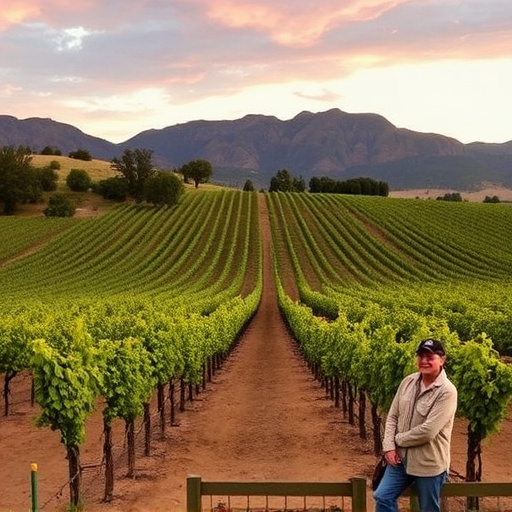
The Sonoita region, nestled in Arizona’s vibrant wine country, boasts a unique terroir that sets its vineyards apart. Here, the combination of soil, sun, and wind creates an ideal environment for sustainable viticulture. The area’s well-draining soils, often a mix of sandy loam and gravel, are perfect for dry farming techniques. This natural drainage prevents waterlogging, encouraging deep root growth in the vines.
The region’s climate is characterized by intense sunshine and gentle winds, providing optimal conditions for grape ripening. Hot summer days and cool nights allow grapes to accumulate sugar slowly, developing complex flavors. The moderate wind patterns also help prevent disease pressure, reducing the need for chemical interventions. This natural harmony between soil, sun, and wind contributes to the distinctive character of Sonoita vineyards, making them a beacon for eco-conscious wine enthusiasts.
Meet the Vineyarders: Pioneers of Sustainable Wine Practices
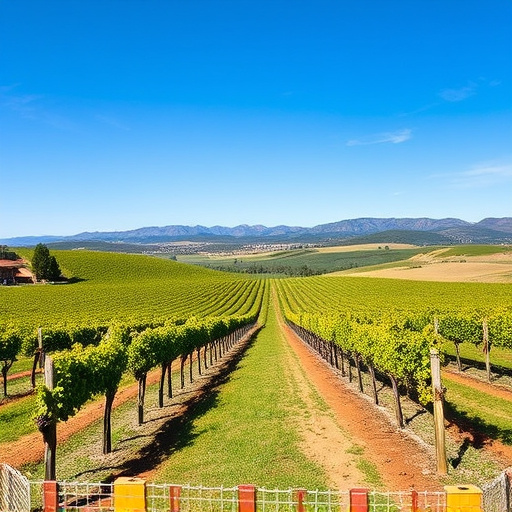
In the heart of Arizona’s Sonoita region, a group of innovative vineyarders are leading the charge in sustainable wine production. These pioneers embrace dry farming methods, demonstrating a deep commitment to eco-conscious practices that preserve the land and water resources while crafting exceptional wines. Their journey is not just about producing high-quality grapes but also about ensuring the longevity of their beloved terroir.
By adopting dry farming techniques, these visionary vineyarders minimize irrigation, relying instead on nature’s rhythm. This approach conserves precious water, reduces energy consumption, and fosters a healthier ecosystem within the vineyards. Their dedication to sustainability extends beyond the vines, as they strive for a holistic balance that respects the complex web of life within their farms. The result is a vibrant community of Sonoita vineyards that not only thrive but also contribute to a greener future for wine production worldwide.
Tasting the Results: Uncovering the Flavors of Eco-Friendly Wines
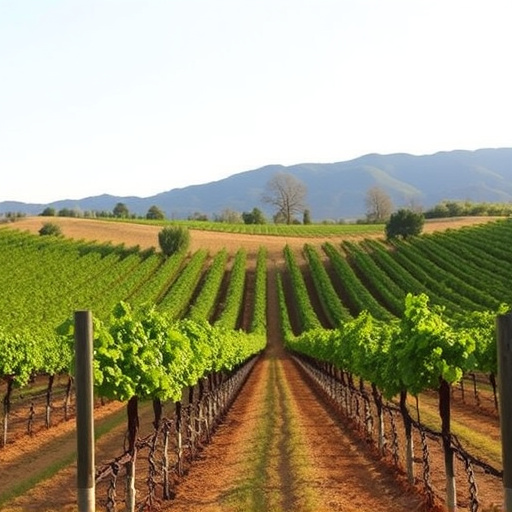
Tasting the results of these eco-conscious practices in the Sonoita region is a delightful experience. The wines produced by these innovative vineyards offer a unique sensory journey, allowing patrons to connect with the terroir and appreciate the art of dry farming. Each sip reveals nuanced flavors that reflect the health of the soil and the surrounding environment, creating a truly exceptional taste profile.
By choosing wines from Sonoita vineyards practicing sustainable methods, connoisseurs can contribute to the preservation of this beautiful region’s natural resources while indulging in a superior drinking experience. The eco-friendly approach to viticulture ensures that the delicate balance of the ecosystem is maintained, resulting in wines with character and complexity that stand out on any palate.
The Sonoita region has emerged as a beacon for eco-conscious vineyards, championing dry farming practices that not only preserve the local terroir but also contribute to a more sustainable future for vino production. By understanding and embracing this unique approach, these pioneers are crafting wines of exceptional quality while minimizing their environmental impact. Exploring Sonoita’s vibrant vineyards offers a glimpse into a promising tomorrow where delicious wines and ecological stewardship go hand in hand.
